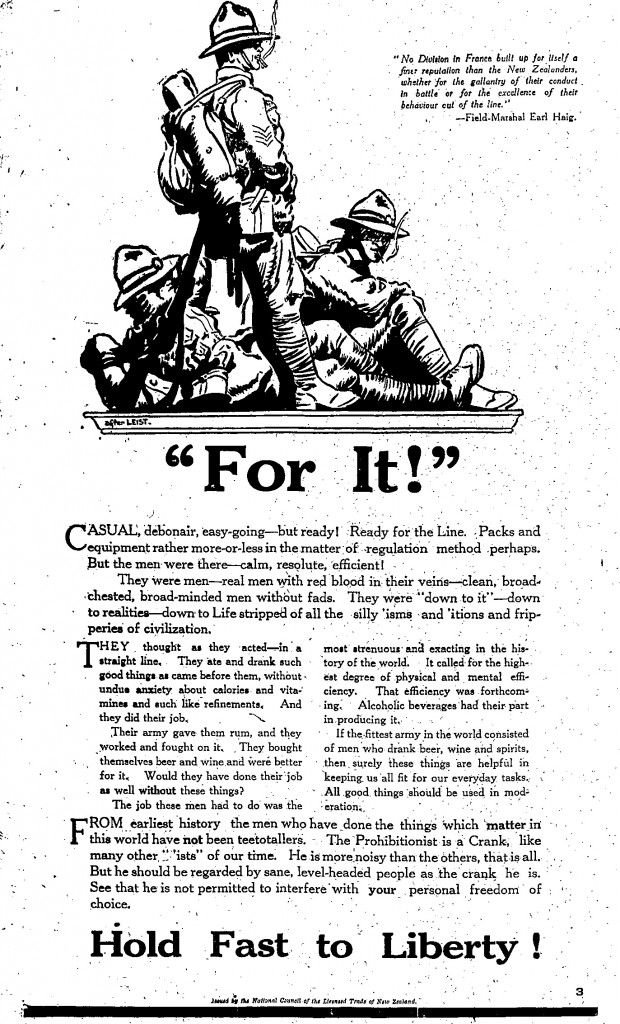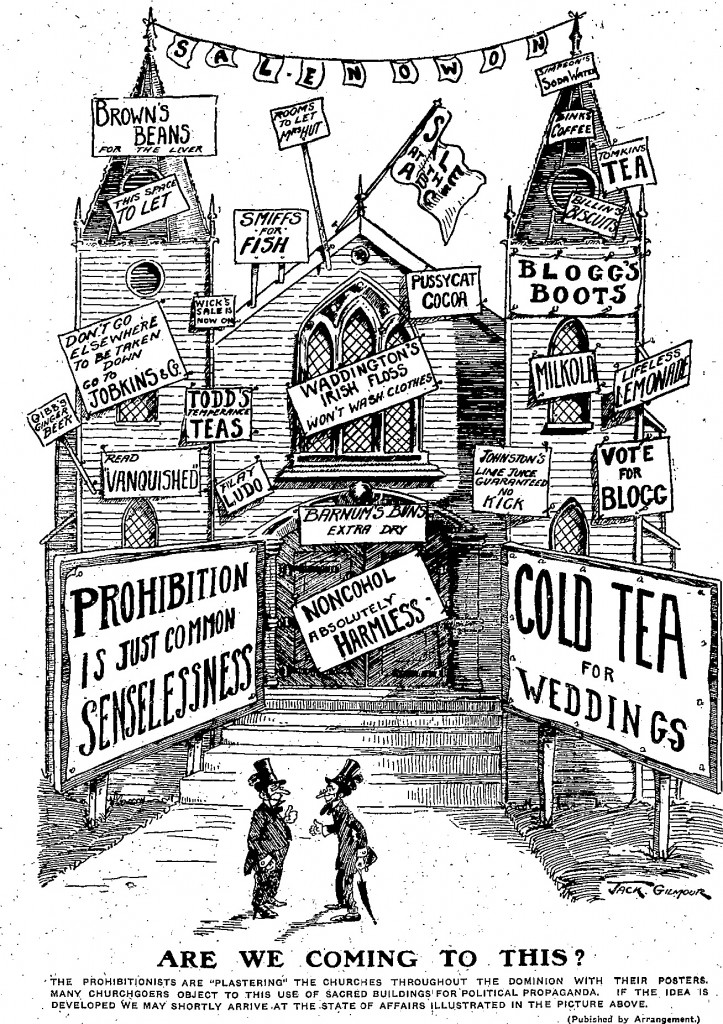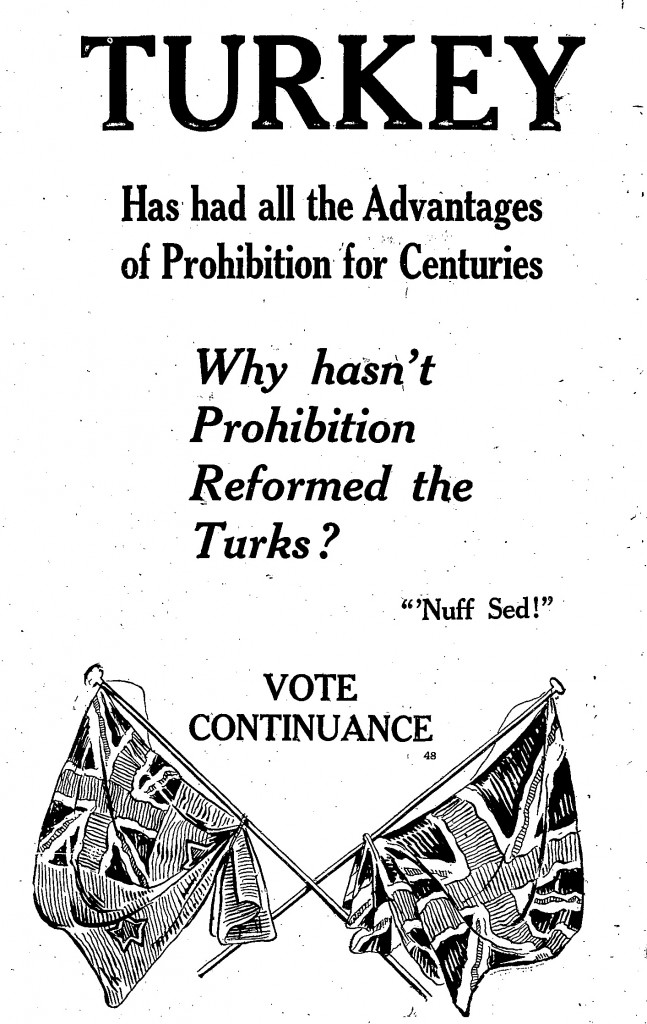By the time I was born, New Zealand Truth was a scurrilous gossip newspaper with little to recommend it to anyone with an interest in serious news. This wasn’t always the case, though. Back in the 1920s it was a cutting-edge newspaper that gave a view on New Zealand political life that defied the cozy establishment. Its producers pioneered technologies and techniques that other papers in the country were slower to pick up on, and it found a wide circulation.
They also really disliked prohibition. In 1919 and again in 1921 New Zealand came very close to implementing laws that would have effectively enacted prohibition. Truth opposed these vigorously. Their advertisements and cartoons in opposition to temperance often drew on patriotic themes in connection to returning soldiers from the First World War, suggesting that complete temperance was in violation of the masculine virtues exemplified by the stereotypical tough ANZAC soldier.
Prohibitionists were threats in the same way as other ‘-isms’ in this ad. Personal freedom was at threat from these ‘Cranks’. Truth appealed to a standard political idea of the time (and since) of the fundamental ‘common sense’ of the working man, which was clearest in moments of greatest danger when the difficulties and brotherhood of war stripped away ‘the fripperies of civilization’. The newspaper was, politically, more aligned with the socialist Labour Party than any other political entity, but in these ads it was invested in presenting its ‘common sense’ views as being a core human principle that was stripped of ideology. Reformers, to the paper, were radical, humorless, extremist ‘wowsers’ while the normal New Zealand male liked the odd drink now and then. Historians have tended to associate this negative stereotype with all religious people in interwar New Zealand; however, anti-temperance campaigners like Truth were careful to suggest that wowsers made up only a small minority of the religious population.
My favorite anti-prohibition ad, though, combined patriotic sentiment with anti-temperance in a different way by drawing on anti-Turkish and anti-Muslim feeling. While by the end of the First World War the Western Front had taken as great a toll on New Zealand young men as the short-lived Gallipoli campaign, for New Zealanders the trauma of the war was and is always associated with the Dardanelles. In 1921 the Turk was still the enemy, albeit an eventually defeated one. For Truth, Islamic prohibitions against alcohol were sufficient to discredit the idea of temperance.


